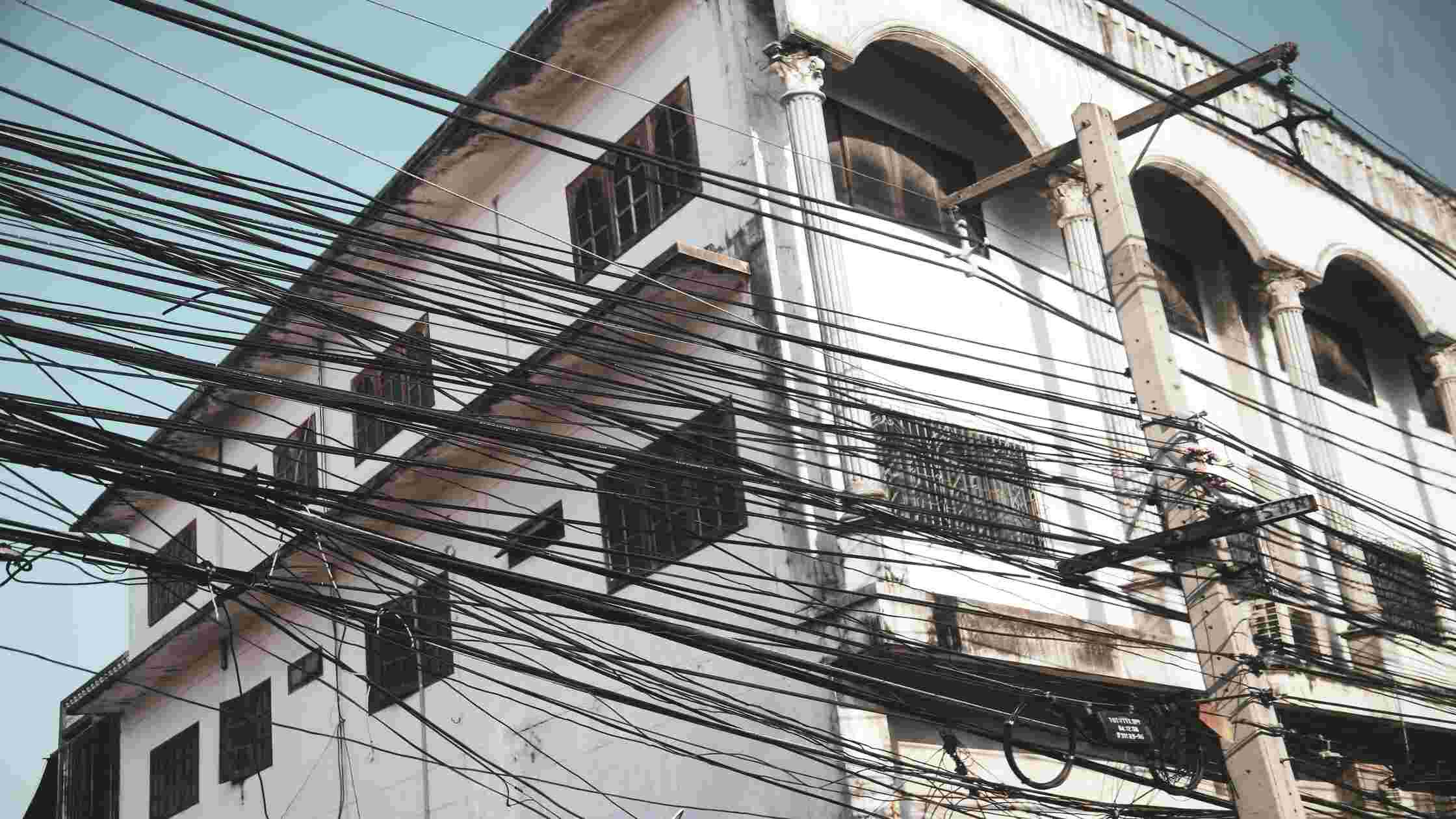Iowa squatter rights can be a major concern for property owners, as individuals occupying land without permission may eventually gain legal ownership through adverse possession.
Understanding Iowa's laws, in general, and squatter rights in Iowa, in particular, regarding squatting, trespassing, and eviction processes is essential for protecting your property.
However, don’t worry—we have your back! In today’s comprehensive guide, we will explore Iowa squatter rights, laws about adverse possession in Iowa, the squatter eviction process in Iowa, trespassing charges in Iowa, and the steps property owners should take to protect their properties.
Quick Facts About Renting And Iowa Squatter Rights Laws
Overview of Iowa Squatter Rights
Squatter rights, legally called adverse possession, allow individuals to claim property ownership after occupying it for a specific period under certain conditions. In Iowa, this period is five years of continuous possession.
Based on these complicated Iowa squatter rights laws, property owners must be aware of them to prevent unauthorized individuals from acquiring legal rights over their property. Scroll down for more information now!
What are squatter rights in Iowa?
Iowa squatter rights enable individuals who occupy land without explicit permission to claim legal ownership through adverse possession eventually. To do so, squatters must meet specific legal criteria during their occupation. Understanding these criteria is essential for property owners to protect their rights.
Squatting vs. Trespassing
While both squatting and trespassing involve unauthorized entry, they differ significantly:
- Trespassing: Entering or remaining on a property without the owner's consent. Trespassing is a criminal offense and does not provide any legal claim to the property.
- Squatting: Occupying a property without permission but intending to claim ownership through adverse possession. If certain legal conditions are met over a specified period, squatters can gain legal rights to the property.
Why Squatter Rights Matter for Property Owners?
Iowa property owners need to be vigilant about squatter rights. Failure to promptly address unauthorized occupancy can result in property rights being lost. By understanding and monitoring these laws, owners can take proactive measures to prevent squatters from establishing legal claims.
Adverse Possession in Iowa
Like in some other states, adverse possession in Iowa is a legal doctrine allowing a person to claim land ownership under specific conditions. In Iowa, the required continuous possession period is five years. However, squatters must also meet other legal criteria to claim adverse possession successfully.
How Adverse Possession Works Under Iowa Law
For a squatter to claim adverse possession in Iowa, their occupation must be:
- Hostile Possession – The squatter must occupy the property without the true owner’s consent. This does not necessarily mean hostility in the conventional sense but rather that the occupation occurs without a formal lease or rental agreement.
- Actual Possession – Based on Iowa squatter rights laws, the squatter must physically reside on the property and demonstrate control over it.
This could include activities such as maintaining the land, making improvements, paying property taxes, or using the space as a personal residence or place of business. Simply claiming ownership without actual use is insufficient.
- Open and Notorious Possession – The squatter’s occupation must be visible and obvious to others, including the legal owner.
- Exclusive Possession – The squatter must not share the property with the public, the owner, or other squatters. They must be the sole occupier, demonstrating that they are treating the land as their own and exercising exclusive control over it.
- Continuous Possession – Under Iowa squatter rights law, the occupation must be uninterrupted for at least five years. The squatter cannot abandon the property for an extended period and then return later to restart the claim.
Legal Criteria for Adverse Possession
To establish a claim of adverse possession and official Iowa squatter rights, a squatter must meet several criteria: First, they must occupy the property continuously for an uninterrupted period of five years. Additionally, the squatter needs to demonstrate "color of title," which means having some form of defective documentation or a plausible claim to the property.
Finally, while it is not always required, paying property taxes can significantly strengthen the squatter's claim, particularly if they have paid for at least one year without receiving reimbursement from the property owner.
It's important to note that simply occupying a property is insufficient; all legal requirements must be satisfied for a successful adverse possession claim.
Trespassing Laws and Their Connection to Squatter Rights in Iowa

Understanding the distinction between trespassing and squatting is vital for property owners. Due to the must-know Iowa state laws related to trespassing, while trespassing is a criminal offense, squatting can lead to legal ownership if adverse possession criteria are met.
What Qualifies as Trespassing Under Iowa Law?
Under Iowa squatter rights laws or general Iowa state’s laws, trespassing is defined as entering or remaining on someone else's property without permission. For that, the state’s law broadly defines trespassing to cover various unauthorized actions, and property owners have the right to take legal action against violators.
Under Iowa Code Section 716.7, a person is guilty of trespassing if they:
- Enter private property without the owner’s consent. This includes physically stepping onto land, a building, or enclosed premises without authorization.
- Remain on the property after being requested to vacate. If a person initially had permission to enter but refuses to leave after being directed to do so, they are committing trespassing.
- Ignore posted "No Trespassing" signs. If an area is marked as private property or has signage prohibiting entry, any unauthorized presence on the property is considered trespassing.
- Enter a fenced or enclosed area without authorization. If a person enters a property that is fenced, gated, or otherwise enclosed to restrict access, they can be charged with trespassing.
Exceptions to Trespassing Laws
In Iowa, certain exceptions to squatter rights laws mean that individuals may not always be considered trespassers under specific circumstances.
For instance, if a person enters a property to provide emergency assistance, such as aiding an injured individual or preventing further harm, this action might be exempt from trespassing claims. Moreover, properties with designated public access areas, like sidewalks or driveways, allow entry under particular conditions. Furthermore, employees from utility companies, postal services, or government agencies often possess limited legal authority to access private property while performing their official duties.
Legal Penalties for Trespassing in Iowa
Trespassing is a criminal offense in Iowa, and following Iowa squatter rights laws, penalties vary based on the severity of the violation. The consequences of trespassing depend on factors such as intent, property damage, and repeat offenses.
You can find all the required information, including the answer to the question “How much are the trespassing charges in Iowa?” right below or through the comprehensive Iowa Code § 716.8 here.
How Landlords Can Protect Their Property From Trespassers
To safeguard against squatters claiming adverse possession, property owners should:
- Regularly inspect their property to ensure no unauthorized occupants are living there.
- Post "No Trespassing" signs and maintain clear property boundaries.
- Immediately remove any trespassers through legal eviction procedures.
- Keep up with property taxes and maintenance to demonstrate active ownership.
- Grant written permission to anyone using the property temporarily to prevent adverse possession claims.
By staying vigilant and proactive, property owners can prevent squatters from meeting the legal requirements for adverse possession, ultimately protecting their real estate investments.
Legal Process for Evicting Squatters in Iowa

Regarding the squatter eviction process in Iowa, property owners cannot forcibly remove squatters without going through a legal eviction process to prevent breaking Iowa squatter rights statutes. Attempting to use force or intimidation can result in legal consequences for the owner. Instead, landlords and property owners must follow these steps:
Step-by-Step Guide to Squatter Evictions
- Serve an Eviction Notice: Issue a formal notice demanding the squatter vacate the property.
- File an Eviction Lawsuit: If the squatter refuses to leave, file a formal complaint with the court.
- Attend the Court Hearing: Present evidence of ownership and prove the squatter’s unlawful occupation.
- Obtain a Writ of Possession: If successful, secure a court order authorizing removal.
- Enforce the Eviction: Law enforcement officers carry out the removal if necessary.
Essential Documentation for Squatter Removal
To strengthen your case, it’s important to gather various forms of evidence.
Start with proof of ownership, such as property deeds, mortgage documents, or tax records. Additionally, photographic evidence that showcases unauthorized occupancy or any property damage should be collected.
Make sure to obtain copies of eviction notices that have been served to the squatter, and gather witness statements from neighbors or property managers who can confirm the unauthorized occupation. This comprehensive documentation will help support your claims effectively.
When to Seek Legal or Police Assistance in Evictions?
If squatters refuse to leave after receiving an eviction notice or if they become aggressive, property owners should contact law enforcement immediately. Additionally, consulting a property attorney can ensure all legal requirements are met during the eviction process and that the Iowa squatter rights laws are followed strictly.
How to Get a No Trespass Order in Iowa
A No Trespass Order prevents unauthorized individuals from entering or occupying your property.
What Is a No Trespass Order and When to Use It?
Under Iowa squatter rights laws, a No Trespass Order formally warns an individual that they are not allowed to enter private property. If they violate the order, law enforcement can take immediate action, including arresting the trespasser.
Property owners should consider obtaining a No Trespass Order if they have persistent trespassing issues or previous squatters who attempt to return.
Filing the Legal Paperwork for a No Trespass Order
To obtain a No Trespass Order:
- File a Police Report: Report any incidents of unauthorized entry or squatting.
- Provide Evidence: Show proof of ownership and evidence of the trespassing incident(s).
- Request a No Trespass Order: File a request with the local court or police department.
- Serve the Order to the Offender: The order must be officially delivered to the individual, typically by law enforcement.
Enforcing the Order Against Unauthorized Occupants
Once a No Trespass Order is in place, any violation can result in criminal charges against the trespasser. Property owners should report violations to the authorities immediately.
Iowa Abandonment Laws and Their Impact on Iowa Squatter Rights
Understanding Iowa’s property abandonment laws is essential for landlords dealing with vacant or neglected properties. For more information, click on this Iowa abandonment-related article from LeaseRunner or glance at the section right below.
What Counts as Property Abandonment in Iowa?
In Iowa, property may be deemed abandoned under several conditions, including when it remains unoccupied for an extended period when the owner neglects to pay property taxes, and when there is a lack of maintenance, utilities, or any visible evidence of care for the property.
Landlord Obligations When Handling Abandoned Property
When a tenant or squatter vacates a property but leaves behind belongings, the landlord is required to follow specific legal procedures before disposing of those items.
This involves providing written notice to the tenant or previous occupant and storing the belongings for a legally mandated period, which is typically 30 days. If the items remain unclaimed after this period, the landlord must adhere to state guidelines for their disposal.
Property owners should consult an attorney to ensure compliance with Iowa’s abandoned property laws before taking action.

Conclusion
Understanding Iowa squatter rights or knowing deeply what are squatter rights in Iowa is crucial for property owners or landlords to prevent unauthorized occupation and adverse possession claims.
By enforcing trespassing laws, securing properties, and following the legal eviction process, landlords can protect their assets effectively. If squatters occupy your property, don’t hesitate to seek legal assistance immediately to regain control.
FAQs
Q1. How long does a squatter have to live on a property in Iowa to claim ownership?
Under Iowa squatter rights laws, squatters must continuously occupy a property for at least five years to claim adverse possession.
Q2. Can police remove squatters in Iowa?
Yes, but only after the legal eviction process or if the squatter is deemed a trespasser.
Q3. How can I prevent squatters from occupying my vacant property?
As mentioned above, some ways to prevent squatters from occupying your property without breaking Iowa squatter rights laws are regular inspections, proper security measures, and the use of “No Trespassing signs”. All of these methods will make squatters or trespassers feel a bit hesitant.
Q4. Do squatters have rights in Iowa?
Yes, based on the official Iowa squatter rights statute, squatters can claim legal ownership through adverse possession if they meet all legal requirements, including five years of continuous and exclusive possession.



